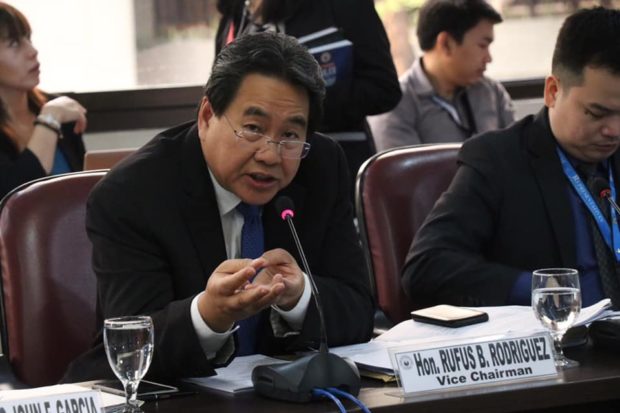Bill seeks abolition of PS-DBM
MANILA, Philippines — A lawmaker has filed a bill seeking to abolish the Procurement Service of the Department of Budget and Management (PS-DBM) amid controversies surrounding the agency’s purchase of COVID-19 supplies.
Under House Bill No. 10222, all government agencies, including state universities and colleges (SUCs), government- owned and -controlled corporations (GOCCs) and local governments, will be mandated to do their own procurement of supplies.
“This bill seeks to abolish the PS-DBM. The Constitution and Republic Act No. 9184 has made the mandate of the PS-DBM redundant and irrelevant in these current times,” said House Deputy Speaker and Cagayan de Oro Rep. Rufus Rodriguez in his explanatory note.
He cited issues involving the PS-DBM, like its purchase of COVID-19 supplies and the Department of Health’s transfer of P42 billion to buy personal protective equipment.
“The PS-DBM has also been hounded by allegations of improper procedure and overpriced acquisitions,” Rodriguez said.
Article continues after this advertisementThe PS-DBM was created by Letter of Instruction No. 755 issued by then President Ferdinand Marcos in 1978. An attached agency of the DBM, the PS-DBM was tasked with the centralized, economical procurement of common-use supplies for government agencies.
Article continues after this advertisementFlagged in the past
With the PS-DBM’s abolition, departments, agencies, GOCCs, SUCs and local governments will “thereafter undertake the procurement of their common-use supplies, materials and equipment.”
Aside from its controversial COVID-19 purchases, the PS-DBM has been flagged in the past for millions of undelivered items and unliquidated fund transfers from other agencies.
The PS-DBM is at the center of a Senate blue ribbon committee probe on allegedly overpriced medical supplies for the government’s COVID-19 response.
Rodriguez pointed out that the Constitution, which directs the government to “maintain honesty and integrity in the public service and to take positive and effective measures against graft and corruption,” and RA 9184, or the Government Procurement Reform Act, have both made the PS-DBM irrelevant and redundant.
“The passage of RA 9184 undermines the mandate of the PS-DBM through the inclusion of relevant provisions that strengthen the procurement service of national government agencies,” he said.
Strengthen BACs
One such provision is the creation of the Government Procurement Policy Board (GPPB) and the bids and awards committee (BAC) in each agency.
The GPBB seeks to strengthen the BACs by ensuring “that procuring entities regularly conduct procurement training programs and prepare a procurement operation manual for all offices and agencies of the government.”
Under the proposed bill, separation benefits will be granted to PS-DBM employees affected by its abolition, while those qualified to retire will receive retirement benefits.
Funds transferred or advanced by agencies to the PS-DBM in the past and in the current year would revert back to the national treasury.
A one-year transition period will allow the PS-DBM to make an inventory of purchased supplies and deliver these to government agencies. INQ
